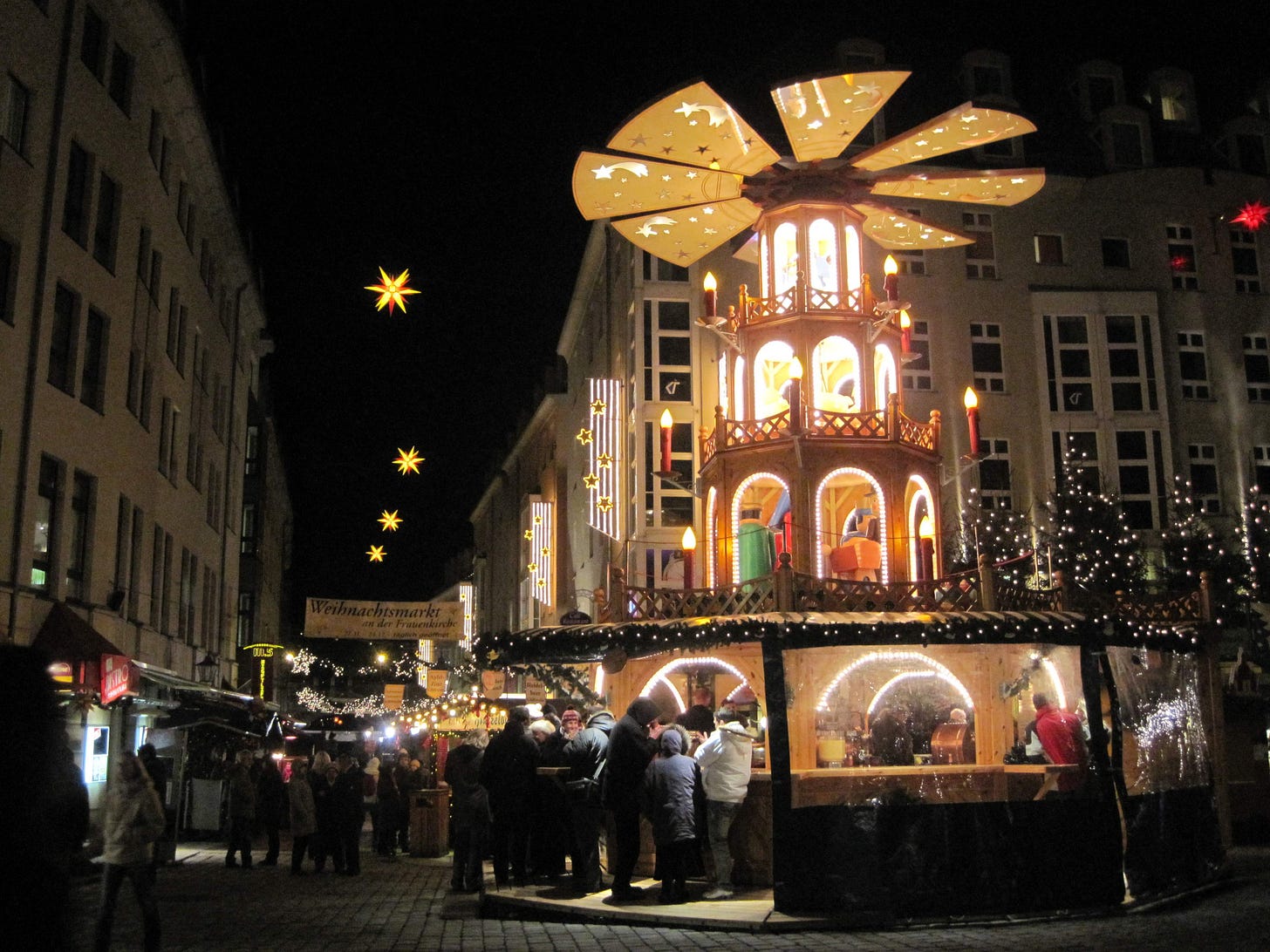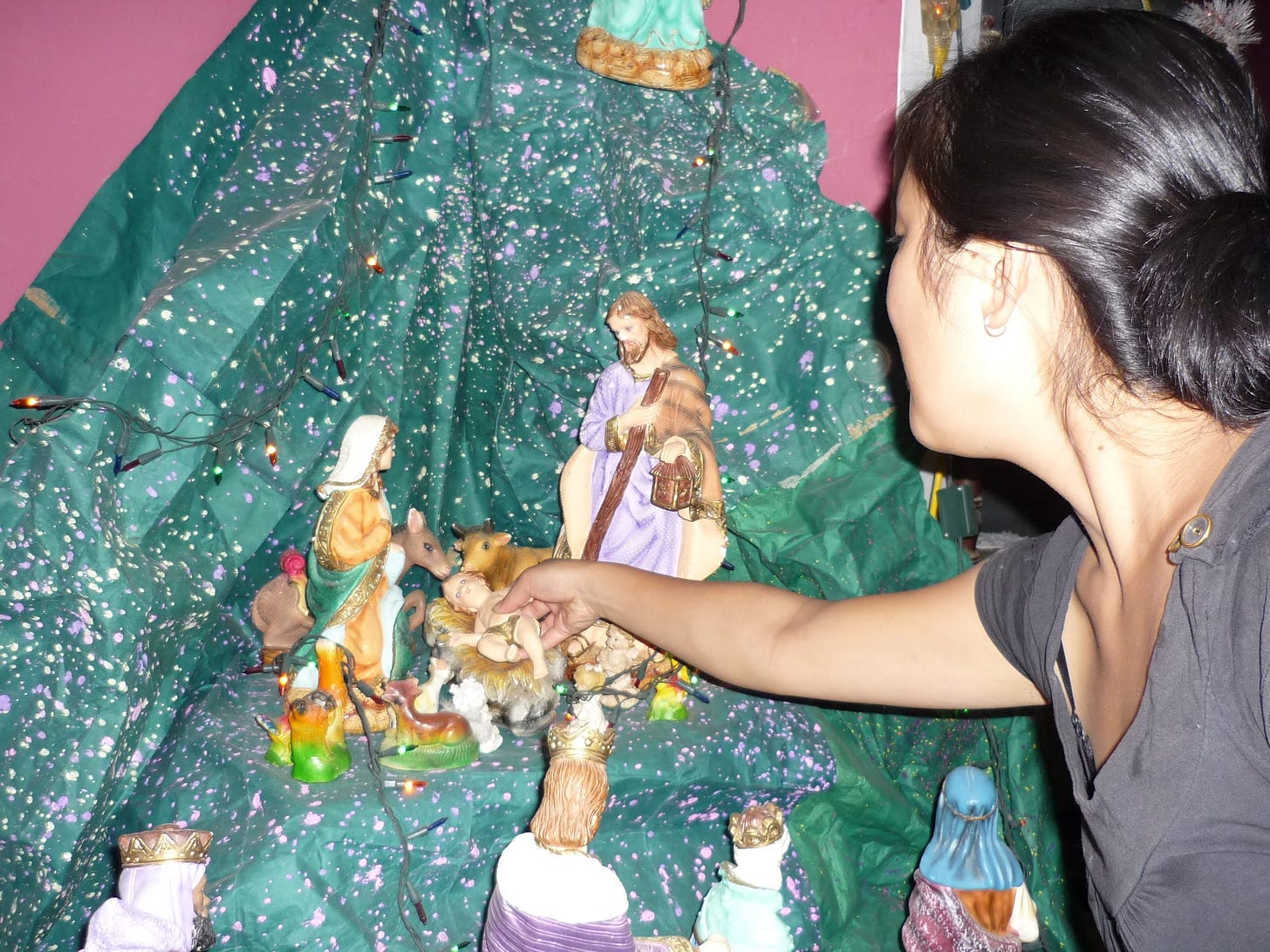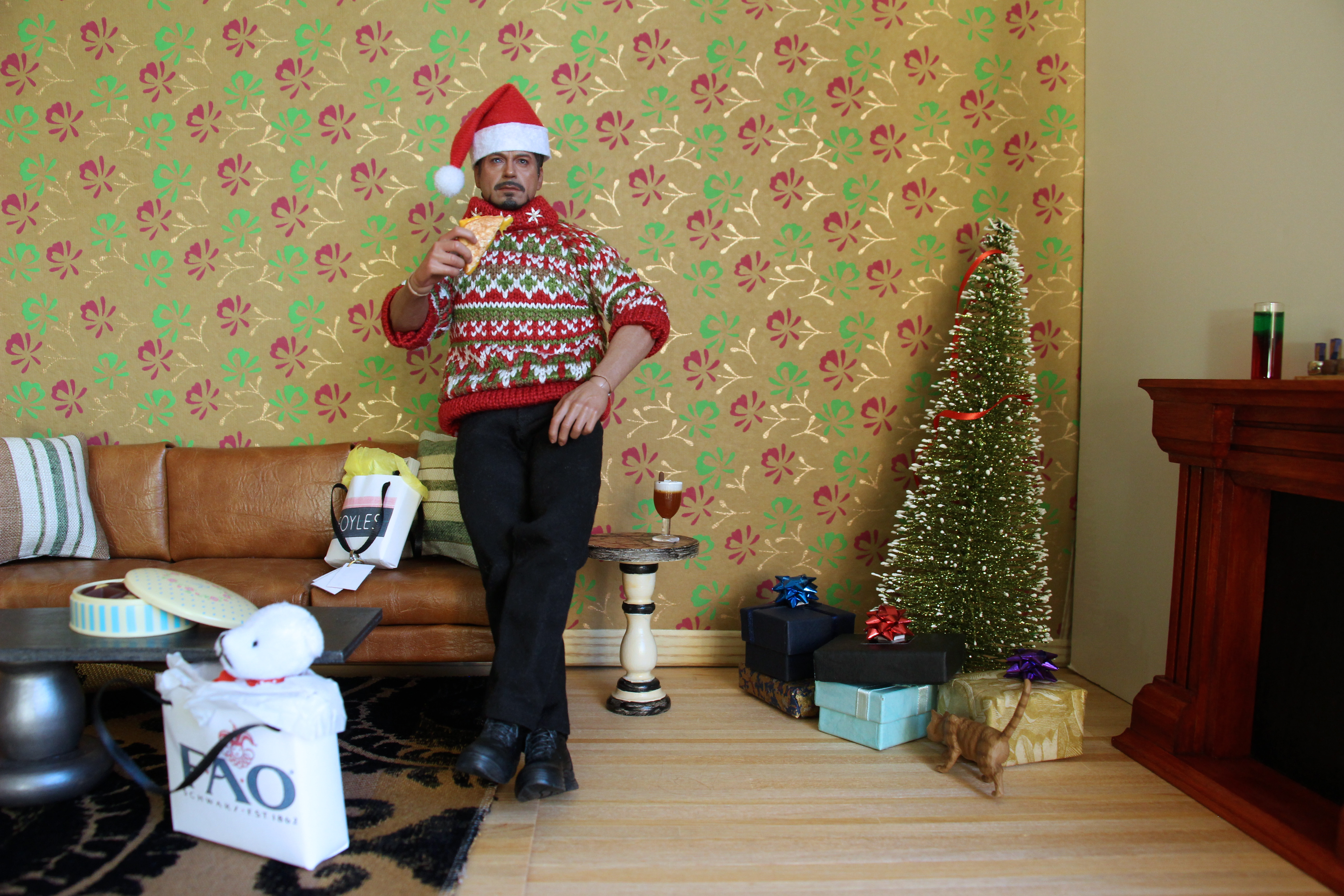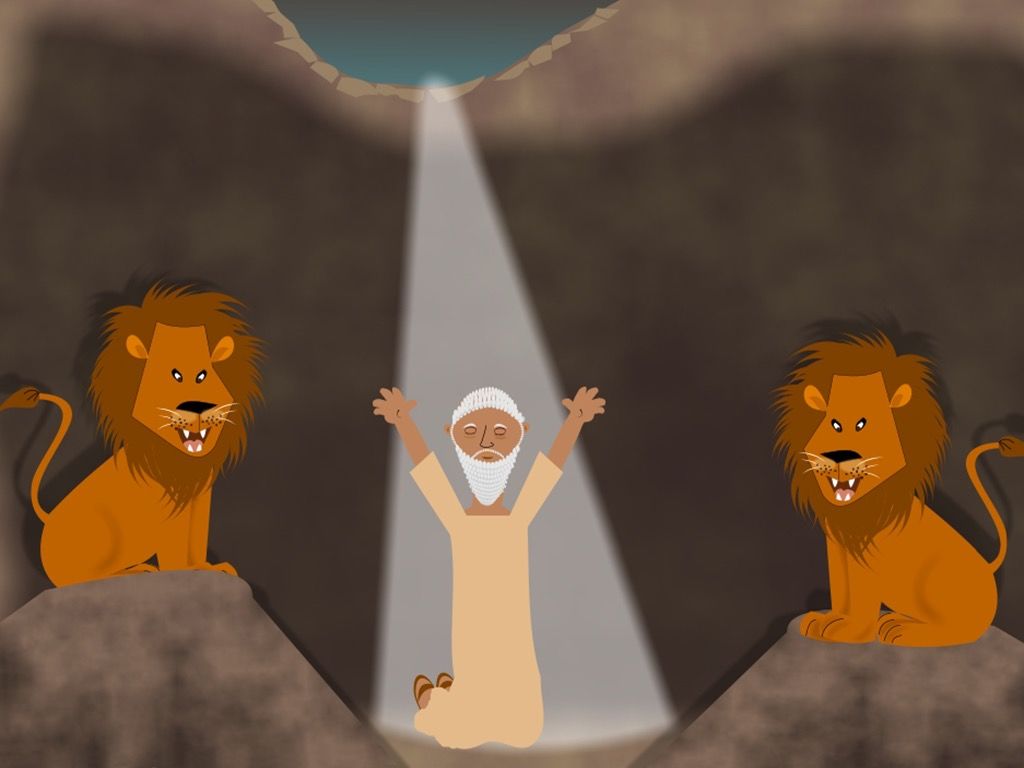To Santa or not to Santa?
Christmas is not a big deal in our family. I never got the chance to believe in Santa and therefore never got the chance to deconstruct my belief in Santa. You see, my mother has always been too rational to indulge her daughters with the myth of a tubby bearded gift giver.

Was my childhood was diminished in any way by not going through this rite of passage? I suppose Mum saved me experiencing that kind of betrayal at a tender age. That said, I do remember shedding more than a few tears over not getting tooth fairy money because there was no such thing as a tooth fairy. The compromise was some change for the school canteen each time I lost a tooth. Basically, the perks without the magic.
Sometimes I think I might have preferred the magic to the perks.
Inhabiting parallel worlds
To Santa or not to Santa? To be(lieve) or not to be(lieve)? That is the question I wondered about: how my sister would handle the Santa business with her own children. After last Christmas, I asked her whether her daughter believed in Santa. She said Yes and no – as if it was not a contradiction but the most natural paradox in the world. My now four-year-old niece understands that Santa isn’t a real person but gets into it anyway.
A friend of mine said the same of her son, who is a little younger than my niece. She observed that for children the line between reality and the imagination is much more fluid. For kids, make-believe is not fake – it’s a second reality. It’s real, in a different way from what’s (f)actually real.

We have two stories at Christmas and these days most people treat both as works of fiction. We’re “outgrowing” Jesus like we outgrew Santa. Contemporary secular society doesn’t see the value in religion.
And in disposing of God, we’ve lost both the perks and the magic.
Chasing magic
What I see is how deeply the people around me crave some magic. Today we seek new forms of spiritual experience: in nature, in thrills, in (not always healthy) intimacy. We lose ourselves in the resonance we find in Taylor Swift lyrics and pithy Instagram influencer quotes that make us feel so seen.
At least in the nature, the thrills and the intimacy, we experience a wonder that is a taste of, a shadow of, something truly divine.
We wonder why these things are so bloody good and decide the answer is well, they’re inexplicable, ineffable, a mystery – rather than it’s God-made and God is in many ways inexplicable, ineffable, a mystery, utterly beyond us. That’s how I feel about the booming genre of books epitomised by Julia Baird’s bestselling Phosphorescence. It received rave reviews all round but was an attempt at understanding and embracing God goodness, without approaching God himself.
Chasing magic. Isn’t that chasing another world, another reality to inhabit, one from which we can bring a piece back to the drudgery of “real” reality?
Christmas magic
I’ll be the first to admit that I am a sucker for magic. Since childhood I have had a penchant for fantasy (it began with Alison Lester’s The Journey Home), and later magical realism.
And though I’ve never had any interest in Santa, I often experience a longing for a White Christmas. I got pretty close in 2009, when my sister and I backpacked around Europe. It didn’t snow in Berlin on Christmas Day, but the Weihnachtsmarkt Christmas markets there (and in Hamburg, Leipzig and Prague) were something special. I still reminisce about that trip.

Even here in the southern hemisphere in the middle of summer, Christmas marketing evokes those wintery vibes, the tinkling bells and the fairy lights. Gingerbread houses, roasts and pine trees abound. Despite the dissonance, the imagery persists. It does take me back to my pining for a White Christmas.
Advertising is trying to create magic around the occasion – and I think most Australians actually secretly love it.
This is not advertising aimed at children, by the way.
The Netflix smorgasbord of Christmas movies has become a phenomenon in and of itself. These films aren’t aimed at children, either.
No, adults are the ones watching these rom-coms, getting into the Santa hats, reindeer ears, daggy sweaters. It’s as if for a month each year, they inhabit a parallel world: the world of Christmas alongside “real life”.

Where the magic is
My family never did any of this. Not Santa, not Christmas movies, neither reindeer ears nor daggy sweaters.
When I was young, Dad would buy us a set of scratchies for Christmas. I cherish those memories because the scratchies were – if not quite the magic of a mystery gift wrapped up under a tree – a gift from someone who loved me, a gift with an element of surprise built in.
My family didn’t really do Jesus at Christmas, either. I mean, we’ve always been regular churchgoers. We had the usual Christmas pageant at church (one of my earliest memories is of wearing a sheep mask in one of those pageants, and running out of the scene because I was totally overwhelmed by stage fright).

But the truth is, despite being committed to Jesus – perhaps precisely because I have grown up in church – it has been hard for me to experience the magic of the original story of his birth.
Evangelicals often quote 1 Peter 3:15:
“Always be prepared to give an answer to everyone who asks you to give the reason for the hope that you have” (emphasis mine).
Today’s Christians focus on empirical and rational reasons. I’ve always felt that the narrative of the whole Bible just made sense, intuitively more than anything. But I suspect my own convictions flow from the truth in the magic of the Bible and of what I’ve experienced, more than from any perks or evidence.
So if I’m longing for some magic in the season, perhaps that’s where I should be looking.
The original Christmas story is full of the magic of incarnation, the “invasion” of the divine. The gift and miracle of God with us, from the God who loves us. The fulfilment of every prophecy, every longing in every heart.
I don’t want to miss that, anymore.





